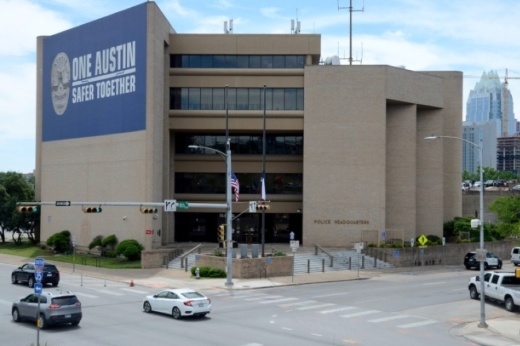Equity Action's oversight measure, if approved, would adjust how the city, its Office of Police Oversight and the civilian Community Police Review Commission handle police officer misconduct complaints as well as relevant police records. Equity Action's development of the policy update comes after the organization led the "No Way on Prop A" campaign last fall opposing Proposition A, a failed ballot measure to require a set police staffing ratio in Austin. The group's Austin Police Oversight Act may be viewed here.
Equity Action announced Aug. 8 it had gathered more than 33,000 signatures on its petition to add its oversight act to the fall election ballot as it submitted the petition to the city clerk's office for review. In Austin, residents can put proposed ordinances up for election if they collect the signatures of either 20,000 registered voters or 5% of the city's voter pool, whichever is smaller. With the city's registered voter count now around 900,000, the 20,000-signature petition requirement applies.
While Equity Action said it had surpassed that count in its petition filed with the clerk's office, clerk staff were unable to verify enough of the signatures in time for an election on the measure to be called for this fall.
Instead of sifting through every single name on the petition, the clerk's office is able to conduct a random sampling of 25% of the submitted signatures, which must then be analyzed by a statistician. City Clerk Myrna Rios said Aug. 18 her office was still working through that random sample but would not be able to complete the work in time for a special City Council meeting to be called to order an election on the oversight act. The Nov. 8 election's filing deadline was Aug. 22.
"My staff have worked quickly to prepare the petition and are working diligently to validate signatures. Over the course of six days, we validated half of the required signatures. However, considering the timeline, we will not complete the petition validation process by the Friday, Aug. 19, 2022, deadline to post the required special called meeting," Rios said in an Aug. 18 email to city officials.
After a petition is validated, council has 10 days to either put the question to voters on the next regular election date or pass it directly. With a fall election now off the table, Equity Action has called on City Council to consider approving the oversight act itself rather than waiting for next May's election.
Equity Action's board of directors said holding off on a vote until the spring 2023 election would "damage trust" in both police and Austin officials given that a new agreement between the city and the Austin Police Association would have to be signed before that time—a contract that would be in place for years after the oversight act's possible passage.
"By voting now, you can help guarantee a police oversight system that makes all of us safer," Equity Action's board wrote In a letter to council. "Ultimately over 33,000 people signed this petition so they could ensure police accountability through strong external oversight. Local workers and volunteers did their part to gather the necessary signatures. The petition’s signatories did their part to impact this current police contract negotiation, not the one several years from now. We ask that the council will now do its part to respect the intent of these tens of thousands of people who signed this petition and pass this into law before the next contract is ratified."
A city spokesperson said Aug. 23 that the petition validation remains in progress.
"The clerk's office is continuing to work on the Austin Police Oversight Act petition until completed," the spokesperson said.
Oversight updates
Changes proposed in the Austin Police Oversight Act include solidifying additional disciplinary powers for the Office of Police Oversight. The OPO was established as a new police monitoring agency in 2018 as part of the latest contract agreement between the city and the APA, which represents Austin police officers. An arbitration process between the city and APA last December ended up limiting the OPO's investigation of police complaints under the current agreement.
The oversight act would keep any new contract or agreements between the city and APA from conflicting with the proposed policy updates. Both sides have spent this year engaged in labor negotiations with the current contract between Austin and the police union set to expire shortly, with an option for several monthly extensions if needed.
"It's urgent now because of December, but it's also urgent because of the budget. And it's urgent because it's time to do something different. And if we lock in a new police contract on the same old track, we won't be doing anything different for another four years," Equity Action representative Kathy Mitchell previously told Community Impact Newspaper.
The oversight act would also block Austin from keeping police officer "g-files," or sealed personnel conduct records created by the Austin Police Department that are allowed under state government code. Instead, the city would have to end its practice of maintaining g-files and publicly release information about officer complaints and uses of force.
APA President Ken Casaday said he believes aspects of the oversight act could be challenged in court.
“We're very confident that [if] this ever gets in front of a courtroom in the state of Texas that it will be either totally thrown out or portions of it. So to us it's a clear violation of state law,” Casaday told Community Impact Newspaper.





